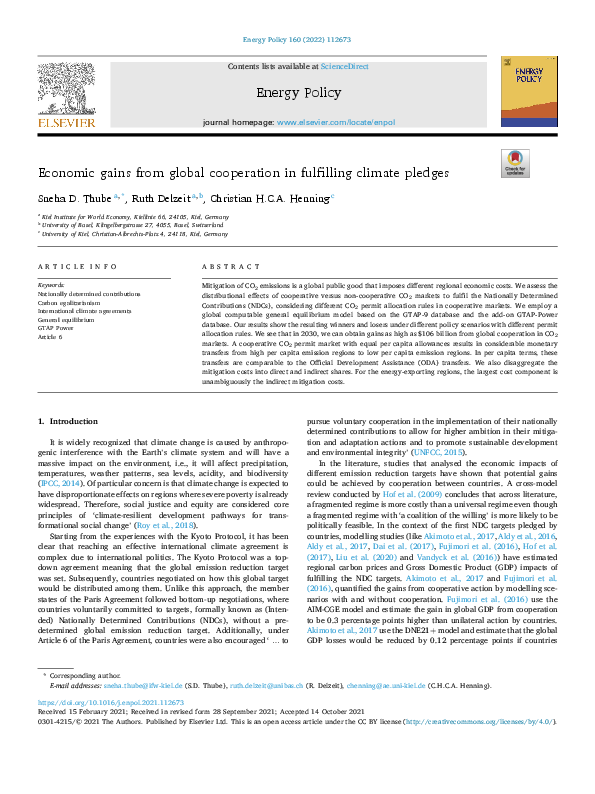Journal Article
Economic gains from global cooperation in fulfilling climate pledges
Mitigation of CO2 emissions is a global public good that imposes different regional economic costs. We assess the distributional effects of cooperative versus non-cooperative CO2 markets to fulfil the Nationally Determined Contributions (NDCs), considering different CO2 permit allocation rules in cooperative markets. We employ a global computable general equilibrium model based on the GTAP-9 database and the add-on GTAP-Power database. Our results show the resulting winners and losers under different policy scenarios with different permit allocation rules. We see that in 2030, we can obtain gains as high as $106 billion from global cooperation in CO2 markets. A cooperative CO2 permit market with equal per capita allowances results in considerable monetary transfers from high per capita emission regions to low per capita emission regions. In per capita terms, these transfers are comparable to the Official Development Assistance (ODA) transfers. We also disaggregate the mitigation costs into direct and indirect shares. For the energy-exporting regions, the largest cost component is unambiguously the indirect mitigation costs.




